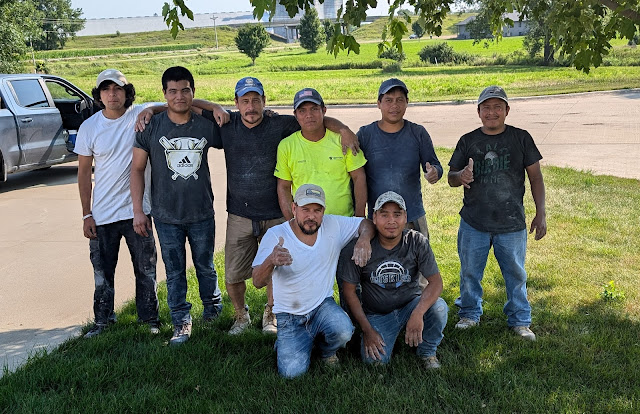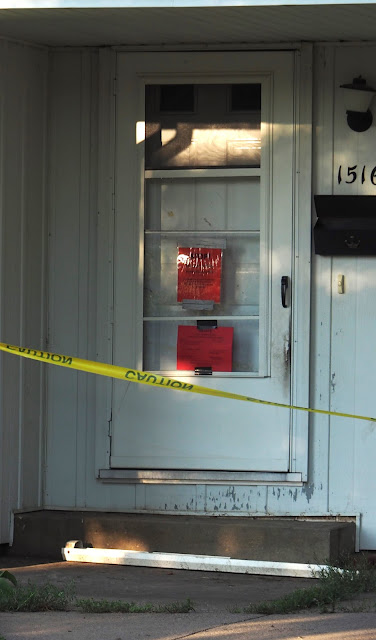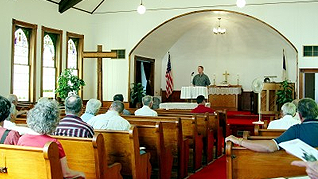He called last week to tell us that the insulation guys would be in, and soon, to replace what got soaked in five feet of river water. We weren't expecting them quite that soon, so we were happy to know that the very first step of the rebuilding process would soon be underway.
"Oh, yeah," he said, "and I ordered the sheet rock, so it'll come soon. They'll want to store it down there in your basement."
He was right. They showed up ahead of time, shouldered all that sheet rock into our naked basement.
Today, our rebuilding quarterback dropped by to say that maybe even tomorrow the bunch would show up. They'll be done in a day," he said.
We had no idea the whole rebuilding business would get up out of the blocks that fast. We don't know who to thank--or too blame :). (There are many who are more needy than the Schaaps--I can live with that guilt.)
Right now, streaming in the Schaap house--both up and downstairs--is a half-dozen proud trumpets pushing along in a beat that is impossible not to distinguish. We've got a basement full of guys slapping up the sheet rock, an entire crew, all Hispanic, one of them fluent enough to ask where they were headed when they came to the front door.
It's not pleasant to sit here and read right now. The drilling and sawing and nailing isn't for the faint of heart. But we're happy as puppies that the job is getting done, and that soon, perhaps, the whole bloody flood experience will just trickle along in innocence.
The insulation crew that stopped in for a few hours last week was also all Hispanic, maybe from different countries, but several of them kind of tender with the use of the English language.
I didn't quiz about their nationality. I should have, and I didn't ask them if they were killers and rapists, dumped out on America's shore to kill and pillage, as so many are, according to the Voice of Truth. Somehow, at first glance, what struck me more than anything was their hustle. "They'll be done in a day, day-and-a-half," the boss says. By the ripping sounds of things right under me, they're right on schedule.
Last night, at Caseys in Hawarden, the shelves looked bare; but a ton of work goes on over there where the Big Sioux took a big mouthful of town out in one fierce gulp. I was the only white guy standing in line. Any stop at WalMart makes it clear that the county sporting the highest percentage of people of Dutch heritage in the nation may lose their dominance. Who really wants to milk cows anyway? How'd you like a life of hanging drywall?--so say the white folks.
I can't help but think that those four guys downstairs--there's eight now, after another crew came by to help--must enjoy their work in the freedom afforded them here, in the unimaginable abundance of a Wal-Mart Super Store, in a place where the only employer around who pays a skimpy ten bucks a hour is Grandpa, shelling it out to his little grandkids.
It is beyond me to understand how so many people here in Iowa's far northwest corner can be followers of Donald Trumps. The plain-and-simple truth is, after the floods, the whole wet region could use a whole lot more. Ask yourself this--even before the floods, where would we be without newest neighbors?
I don't take to their music, and the freaky noise of those wild power tools had the cat under the bed. I'll be okay if they leave at six.
p.s. They left before five. Finished. There they are, top of the page. Not a wooden shoe among 'em. They're finished. Less than three hours.



























